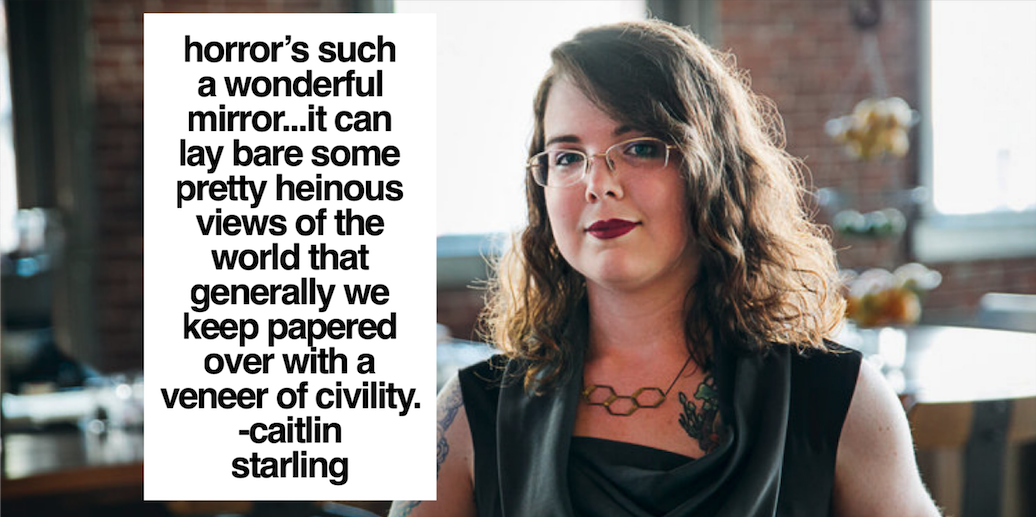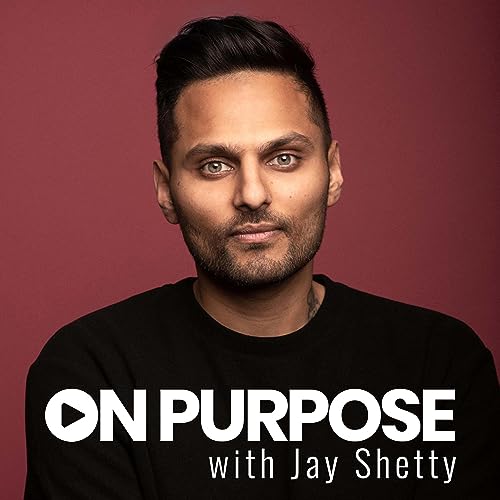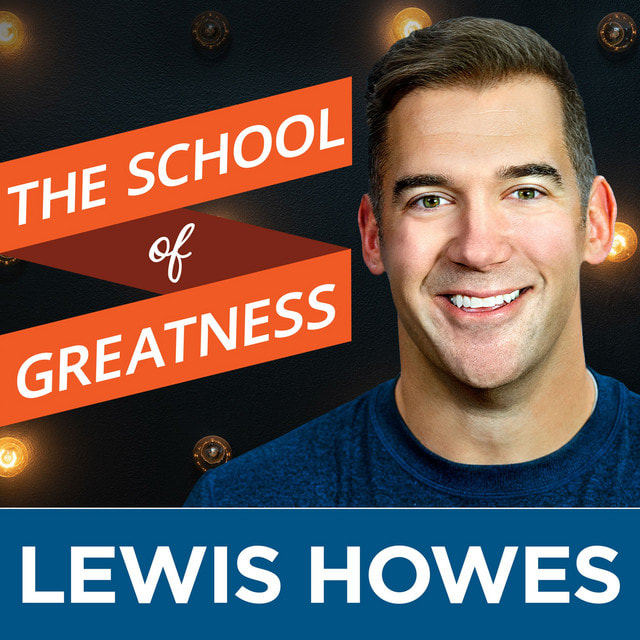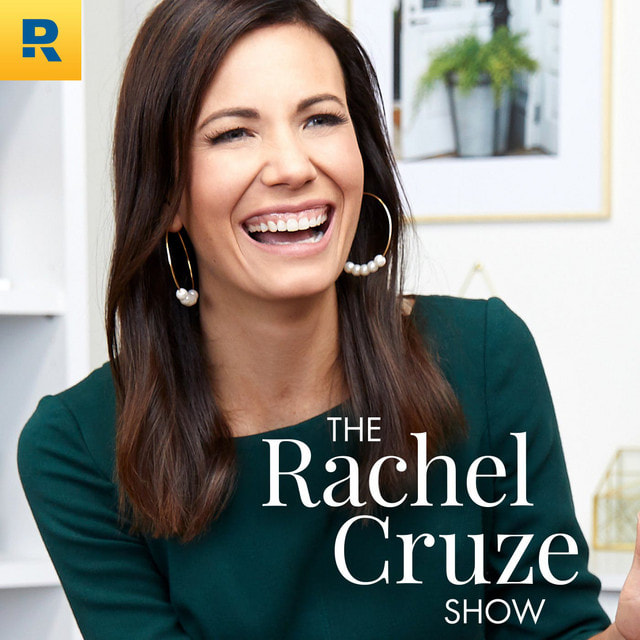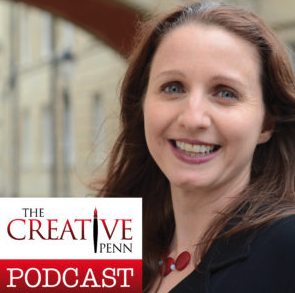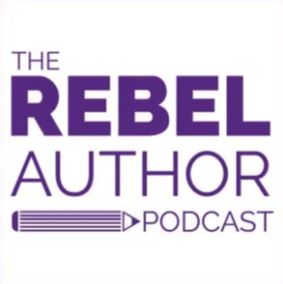|
It's been awhile my horror family but I'm a firm believer of taking very needed breaks, both mental and physical, in order to stay at an acceptable level of insanity (let's be real, is sanity really a thing?). I am extremely thrilled to introduce to you my next woman thought leader in horror, Caitlin Starling. As usual, but never the usual, buckle up!
1. Why horror? What fascinates you about horror and enticed you to write in the genre? When I started writing The Luminous Dead, I knew it was going to involve some horror elements, and I will admit I had no idea what I was doing. But horror made sense for it – it added tension, urgency, and dread immediately, and went so well with what I'd already decided about the book (two characters, one is locked in a suit for the whole time with attendant creeping body horror, no way to tell if the other character is trustworthy but having to trust her anyway…). It wasn't until we sold it and actually had to think about marketing that I really understood that it wasn't a science fiction novel with horror sprinkled over it. It's a real horror novel! In hindsight though, it should've been obvious where I was heading. I've always written about intimacy, particularly intimacy under strain. Whether it's an existing relationship being put to the test, or new relationships forming under life-and-death circumstances, horror is a wonderful and natural tool to push and pull at those bonds and see how far they can stretch before they break (often in spectacular fashion). 2. What is your favorite era of horror and why? To be one hundred percent honest, I'm incredibly new to the genre, and haven't done much of my "homework" yet – I still have so much to read and watch and discover! But I really do love the current moment we're in. We have so many different voices in the conversation, so many explorations of what horror has been, is, and can be. Do you want queer horror? Here are twenty different approaches. Black horror? South Asian horror? There's so much to choose from, and that's before you get into all the experiments, the deconstructions, the angry and joyful and powerful reclamations. It's a wonderful and very humbling time to be entering the field. 3. What are some of your favorite horror films? A Dark Song (2016) destroyed me in the best way. Get Out (2017) was, of course, devastatingly awesome. I'm also a huge fan of Behind the Mask: The Rise of Leslie Vernon (2006), and can honestly say I really enjoyed Paranormal Activity (2007), possibly because I only just watched it a few months ago. If you're noticing a lack of 2018-2020 titles on there, that would be because I'm actually a complete weenie when it comes to movies, and I haven't had a buddy to watch with for the last while. 4. What do you think the genre of horror brings to the world in terms of values, beliefs, impact? Horror's such a wonderful mirror. It exaggerates and distills a lot of societal anxieties. That's a double-edged sword, of course – it can lay bare some pretty heinous views of the world that generally we keep papered over with a veneer of civility. (Looking at you, "I'm afraid of anybody who looks different from me" racism.) I find it most interesting when it's reflecting (and is only claiming to reflect) very personal anxieties and fears. I like seeing what frightens other people. I like seeing how people imagine fighting back. 5. How do you think your writing of horror reflects you as a person or your life overall? Pretty sure you can guess at my problems with trust and intimacy from a mile away by this point. ☺ And my fears of all my skill and focus and dedication not being able to help me when things really get dark. It's very self-centered horror. Very, "Oh fuck, I actually do need other people, I can't do this on my own, and maybe now it's too late to get help." 6. What do you think lies ahead for the genre? So much more variety. Things that I, personally, can't predict, but am eager to see. Reclamations of the monstrous. More psychological horror. Cooler, weirder creatures. Really nuanced, terrifying stories about how technology interfaces with our lives. Climate horror (because, when you get down to it, isn't climate change pure cosmic horror? A juggernaut that will make you suffer and die, and that is here because of our actions, but can't be fought head on, and that will not notice us as it destroys us.) 7. Like many things, women are underrepresented in the horror genre. Why do think this is and why is it critical to have women more represented in horror? Respectability, I'd guess – from gatekeepers, promoters, audiences. And that goes beyond just, oh, women are so delicate, they must be shielded – I think women's horror is often extremely distressing to audiences, particularly when it's their first encounter with it. Women's horror deals so much with loss of autonomy, loss of identity, deep rage… obviously not all simultaneously, not all at the forefront of every story, but it's so often there. And when you add queerness, when you add varying experiences of gender, and especially when you start listening to women who aren't white? It's powerful, and overwhelming in its strength, and I think a lot of people flinch and look away instead of engaging. (You should engage. Trust me. There's so much amazing work out there.) 8. Any tips for new women writers in the horror genre? Write what scares you, what pisses you off. Have fun with it. Indulge the darker sides of yourself and see what comes out. You can calibrate it for an audience later, if you want to; but when you're first drafting, follow every rabbit hole. 9. Who are some of your favorite women horror authors to read? A non-exhaustive list: Cassandra Khaw, Kate Alice Marshall, Cherie Priest, Margaret Killjoy, Camilla Bruce, Gemma Files, Nibedita Sen. 10. For readers who have never read your work, what should they start with and where can they find more information about you? Start with The Luminous Dead, which is my first full-length novel. It's equal parts survival scifi horror and gothic horror piece. For the rest, you can find me at www.caitlinstarling.com, and at @see_starling on twitter. Caitlin Starling is an award-winning writer of horror-tinged speculative fiction. Her novel The Luminous Dead won the LOHF Best Debut award, and was nominated for both a Locus and a Bram Stoker award. Her other works include Yellow Jessamine and a novella in Vampire: The Masquerade: Walk Among Us. Her nonfiction has appeared in Nightmare and Uncanny. Caitlin also works in narrative design, and has been paid to invent body parts. Find her work at www.caitlinstarling.com and follow her at @see_starling on Twitter. Thanks for tuning in, Sterp
0 Comments
Leave a Reply. |
Categories
All
PODCASTS I LISTEN TO EVERYDAY |
